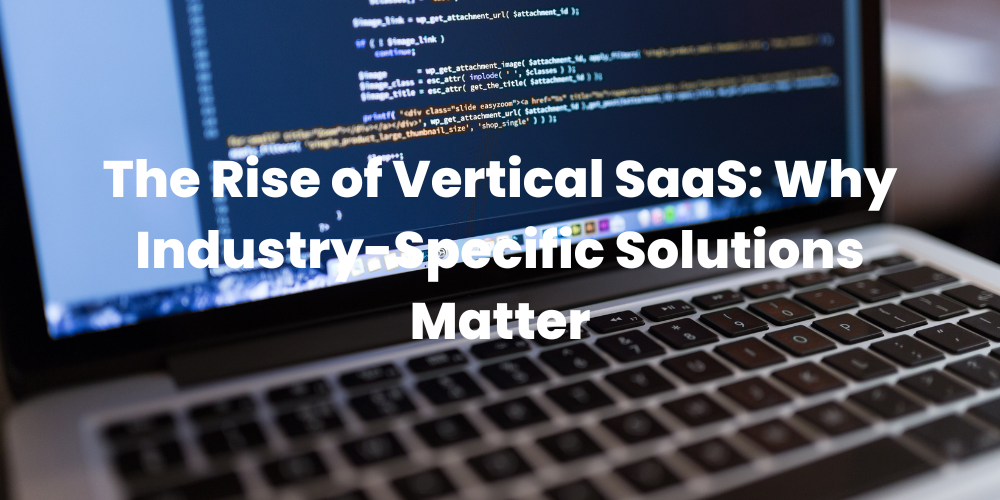In the rapidly developed digital scenario, businesses are looking for ways to streamline continuous operations, increase productivity and increase development. Software-as-a-Service (SaaS) has been an important driver of this change, providing business with flexible, scalable and cost-effective solutions. While the horizontal SaaS solution, designed to meet a wide range of industries, dominated the market, the rise of vertical SaaS has attracted the attention of businesses in search of more specific, industry-specific software solutions.
This blog examines the development of vertical SaaS, why it is gaining momentum, and how it is changing industries by providing an analogous solution to meet unique demands of different regions.
What is Vertical SaaS?
The vertical SaaS refers to industry-specific software solutions that are designed to solve unique needs and challenges of a particular area. Unlike horizontal SaaS, which provides a size-fit-all approach to industries (eg, CRM, ERP, or HR software), focusing on distributing sewed features, workflows and functionalities for specific industries such as vertical SaaS, manufacturing, retail, real estate, and more.
Why is Vertical SaaS on the Rise?
The demand for vertical SaaS is inspired by the feeling that there are specific workflows, rules and pain points in industries that generic software solutions cannot effectively address. There are some major factors here that contribute to the rise of vertical SaaS:
Industry-specific features and functionality vertical SaaS platforms are designed with a deeper understanding of the specific requirements of an industry. They offer special features, equipment and integration that align with industry practices and standards. For example, a vertical SaaS platform for healthcare may include features for patient data management, HIPAA compliance and telemedicine, while a retail-specific solution may focus on inventory management, point-of-sale (POS) system and customer loyal programs.
Regulatory compliance is many industries, such as healthcare, finance and manufacturing, strict regulatory requirements. Vertical SaaS providers designing their platforms to ensure compliance with these rules, helping businesses to avoid expensive legal issues. This allows industry-specific focus businesses to operate confidently, following their software the required guidelines and standards.
Rapid implementation and scalability because the vertical SaaS corresponds to a specific industry, the implementation process is often faster and more straight. Businesses do not need to spend time customizing generic software to meet their needs. In addition, vertical SaaS solutions are scalable, allowing businesses to add new features and abilities as they grow.
Better user experience with special workflows and user interfaces designed for industry-specific tasks offer a better user experience than vertical-SaaS solution horizontal solutions. Employees can more easily navigate the software because it conforms to their daily tasks, resulting in an increase in productivity and less training time.
Increased customer aid vertical SaaS providers often have deep expertise in industries that they serve, allowing them to provide more individual customer support. Businesses can benefit from more relevant advice, rapid resolution and active updates to meet the trends of business industry or regulatory changes.
Competitive advantage vertical-SaaS solutions enable businesses to separate themselves from competitors by taking advantage of industry-specific equipment that improves efficiency and performance. With access to technology which are tailor to their industry, can optimize business processes, improve service distribution, and eventually achieve better results.
Examples of Vertical SaaS Applications
Healthcare: Vertical SaaS for healthcare may include patient management system, electronic health records (EHR), telemedicine platforms and compliance equipment to follow health rules like HIPAA.
Retail: Retail businesses can benefit from vertical SaaS platforms that offer facilities like inventory management, customer relation management (CRM), ecommerce integration and real-time sales analytics.
Manufacturing: Manufacturing-specific SaaS solution can focus on production scheme, supply chain management, quality control and compliance with industry standards.
Real Estate: Vertical SaaS for real estate can provide equipment for property management, tenant tracking, lease administration and real-time market analytics.
Finance: Financial institutions can avail vertical SaaS platforms designed to detect regulatory reporting, risk management, customers onboarding and fraud.
The Future of Vertical SaaS
As industries continue to embrace digital changes, the demand for special software solutions will only increase. Vertical SaaS is expected to play an important role in helping to face complex industry-specific challenges while being competitive in the market sometimes developed.
In addition, AI, machine learning and data analytics are more integrated into software solutions, vertical SaaS will become even more powerful. Businesses will have access to future analytics, real-time insights and automation tools that are specifically designed to meet their industry’s unique needs.
Why Industry-Specific Solutions Matter
Industry-specific SaaS solutions provide business with equipment and features that they need to operate efficiently within their particular field. They allow companies to focus on growth and innovation without the need for extensive adaptation of generic software. The benefits of vertical SaaS include rapid implementation, better compliance, better user experience and a significant competitive advantage.
Companies investing in vertical SaaS platforms are better equipped to meet their industry challenges. They can achieve high level of efficiency, improve service distribution, and maintain compliance with industry rules by providing better experiences for their customers and employees.
AleaIT Solutions: Your Partner for Industry-Specific SaaS Solutions
When it comes to vertical SaaS, Aleait Solutions are a leader in providing industry-specific software solutions that help businesses to grow in competitive markets. With deep expertise in various industries and a strong focus on distributing the selected SaaS platforms, Aleait Solutions ensures that your business has access to the right tools, facilities and integration to excel in your area.
Whether you are in healthcare, retail, manufacturing, or any other industry, Aleait Solutions can help you in building and implement the perfect SaaS platforms meeting your specific needs. To learn more about how their industry-focused solutions can increase success for your business, contact Aleait Solutions today.





2 thoughts on “The Rise of Vertical SaaS: Why Industry-Specific Solutions Matter”
Comments are closed.